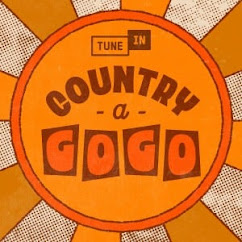Continuing our interview with JB biographer RJ Smith.
RJ SMITH: The second prison trip made him more of a bluesman than he had ever been in his life. It seemed to make him sadder, older. It was a thoroughly humiliating experience, and one he could never conquer, because he could never engage with the root reason he was in there: his addiction to PCP. He could never admit he had a problem, and in his mind his incarceration was some sort of punishment by God, or crucifixion, ultimately he processed it as a sign of his martyrdom. It’s sad, too, that in his time of need, few seemed to want to visit him. Lee Atwater did, and Strom Thurmond probably kept him out of harm’s way; I think Brown came out of the South Carolina prison with a feeling of gratitude to some extremely conservative SC pols.
ICHI: A couple of months ago I wrote about the James Brown/Joe Tex feud. http://wfmuichiban.blogspot.com/2012/02/amazing-story-of-joe-texjames-brown.html. Do you have any interesting tidbits about the Joe Tex/James Brown relationship?
RJ: That feud with Joe Tex continued, though possibly without firepower. Brown had a public beef with Joe over “Skinny Legs and All,” which Brown felt was disrespectful to women. And in 1969 Brown wrote an elliptical column in Soul magazine in which he pretty much says that Joe Tex should just shut up and be content with being Number Two, there’s no dishonor in being second best. If only Joe could admit it, Brown says, he could help him! I think Joe’s likeability and his clowning really got under Brown’s skin.
 |
| apparently he had no such issues w/ "Ain't Gonna Bump No More w/no Big Fat Woman" |
Let's talk about Bobby Byrd. He was there from before the beginning to after the end, and I don't feel his importance to the entire James Brown story can be overstated. How do you see Byrd in terms of being one of the major cogs in the wheels of the James Brown machine?
No Bobby Byrd, no James Brown. It’s approximately that simple. I mean, Bobby’s family gave JB a way to get out of prison, by letting him live with them. Then Byrd sort of gave Brown his band, or JB took over Byrd’s crew and Byrd was cool enough with it to stick around afterwards. Byrd knew the show, and knew how James liked things, and was constantly there to help bring James' vision and wishes into reality. I think Bobby Byrd was a very good guy, the kind of nice guy that Brown pushed around until they finally pushed back. For Byrd that would mean leaving, or taking JB to court as he did in later years to get money he felt he was due. But Bobby was always grounded enough to see the big picture; he kept his ego in check, and was there, on and off, for much of the ride.
 |
| I Need Help! (I Can't Do It Alone)* |
That performance of “There Was a Time” is amazing. The way he name checks dances from the African American tradition, and then introduces the ultimate dance, the one at the end of the line: The James Brown. He makes you see how a whole music, and a variety of traditions, telescope into him. He never sounds as in control of an audience and in charge of the moment as he does there. And there’s something bottomless about the way Clyde and Jabo play off the beat – one a hair in front, the other just behind – and pull time apart.
"Well I'll be ----!"
As a follow-up to that question, how did you decide which songs and performances to write about, aside from their historical importance? And how big a challenge was it to convey what is actually going on in those songs?
With music there is so much to talk about, so many ways into a discussion, it’s hard to stop. Sometimes you talk about how a song was written or recorded, sometimes you talk about what it means, or what it meant to the one who made it. And sometimes folks wonder how you could possibly miss “Pass the Peas” or “Funky Drummer” or “Santa Claus go Straight to the Ghetto” – there’s so much to cover. And I have to save some room to talk about “I’ve Got Money”: ALWAYS gotta save room for that. I tried to pick songs and performances that would keep the momentum moving forward – rather than end a thought or line of discussion with a song or show, I hope I used them as often to keep moving us forward in time.
keep moving forward in time!
In the late 60s, JB's opening act was a white instrumental band called the Dapps [they also back James up on "I Can't Stand Myself" and released several singles JB produced]. If there were some issues with certain audience members on there being a white player or two in Brown's band in the late 60s, as you mention in The One, what was the reaction to an all-white opening act?
It was a core of nationalists and some Islamic groups that had a beef with the whites in Brown’s band, not so much the average ticketholder. They were also incredibly incensed that Brown was still processing his hair and would not go with the Fro. Of course, any pressure Brown got for having Caucasians onstage just made him double down. Maybe that’s the real reason why he recorded with the Dee Felice Trio: how you like me NOW, Eldridge Cleaver?
 |
| JB with the Dapps |
Be back on Monday with the thrilling conclusion of this interview, wherein Mr. Smith talks Lynn Collins, JB's production techniques, "the Grunt", and . . . Future Shock.
*all credit and praise to the original gif animator for that bit of internet wonderment. I found it here.




+-+Prisoner+Of+Love.jpg)











0 Comments:
Post a Comment